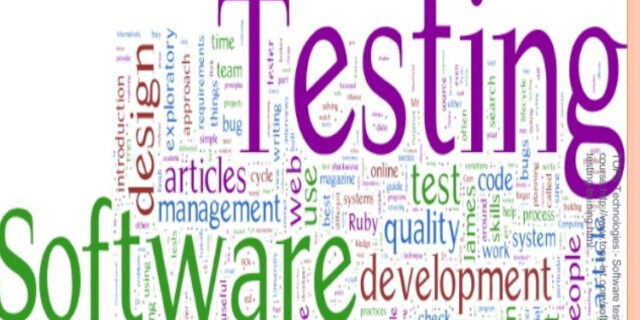
A career in software is a glamorous option if you are tech-savvy and enjoy breaking things (not literally). The future scope of a field is the first consideration we make when deciding on a career path. And information technology or software development will almost certainly be seen as a safe and fast-growing industry in which to plant your career sapling.
Let’s take a look at software testing as a profession.
Qualifications:
Software testing techniques must be thoroughly understood. To determine whether software is properly functioning, one must be able to distinguish between different software testing methods and understand the parameters.
Any job in the technology field, including software testing, necessitates maintaining current knowledge of emerging IT trends. When software design trends change, so must software testing trends. Using a single method of software evaluation will fail for years.
Software testing is open to engineers with a computer and technical skills, as the adage goes. Engineering is for studious, hardworking, and persevering students. To be successful in this field, one must have an unwavering passion for software and all things related to computers.
After passing the Grade 12 examination, a bachelor’s degree in computer science or a bachelor’s degree in technology is required.
If you have a business background, you may want to consider pursuing a Bachelor’s degree in Computer Applications.
It is not necessary to have a master’s degree in software engineering or a master’s degree in technology but a master’s degree in computer applications, or MCA, is certainly will be an added advantage.
Scope of Automation and Manual Testing:
The Scope Of Manual Testing:
The scope of automation testing will be expanded in the future.The pressure to complete projects as quickly as possible has increased more than ever before as a result of rapid technological advancement. The entire software life cycle process must be accelerated to complete projects on time. In software testing, automation can save money and time, but only on time-consuming projects. When it comes to large-scale regression testing, automation testing is the way to go. This could be a viable alternative.
Test automation has a number of significant advantages, including the following: Reduces manual software testing operations and redundant testing efforts, adds systematic repeatable software tests, reduces repetitive work, and generates more consistent test results and higher consistency, all of which improve software quality.
In a short period of time, increase the number of software tests executed and improve testing coverage.
It boosts productivity, among other things. It’s a good way to get rid of or reduce the amount of manual effort required to run regression and functional test cases. Furthermore, the chances of escaping a flaw will be greatly reduced, as errors will not occur once the script has been thoroughly developed. In the future, automation will be seen as more cost-effective in terms of both quality and time.
The Future Of Manual Testing:
The behavior of the developed application is generally evaluated by performing a step-by-step analysis of the requirement specification analysis record during manual testing, which is considered the initial testing phase. The primary goal of manual testing is to ensure that the application works flawlessly and is free of bugs or functional defects, as well as that it follows the requirement specification documents.
In terms of functionality and requirements, the future of manual testing is becoming increasingly similar to that of software development. Manual testing’s evolution and operational developments demonstrate the importance of manual testers constantly honing their skills and working styles. To stay current with new technologies and automation testing frameworks, manual testers should continue to develop their skills in areas such as development/special testing tools, leadership qualities, logical thinking, and process analysis. What testers are expected to do is improve their skills and gain a better understanding of critical programming concepts and how development works, which may have occurred to you.
Recognize the code’s behavior.
To maximize ROI, gain a better understanding of how the business operates. Capacity to carry out management tasks.
These are the crucial steps that propel them to the position of Test Analyst, which is similar to that of a Subject Matter Expert [SME]. As a result, manual testing will continue to exist alongside all of the exciting new automation testing tools introduced, and all of its fundamental concepts will continue to be developed and used in every Software Development/Web App development process. Automation and manual testing will continue to complement each other for the foreseeable future. Read More
According to Ms.Mariana Joseph, a spokesperson for Techfetch RPO Recruitment process outsourcing in the United States Organization (https://rpo.techfetch.com/)
“The Scope of Software Testing as a Career is vast.The scope of software testing can feel overwhelming to newcomers. The field has grown so rapidly, it’s hard for anyone who wants to get into the game without any experience to even know where and how they should start learning about all aspects. However, there are plenty of resources out there that give great information on this subject- from places like Udemy or Pluralsight (web services). It’s just important not only use these sites but also observe different people in their respective industries using them too! “



